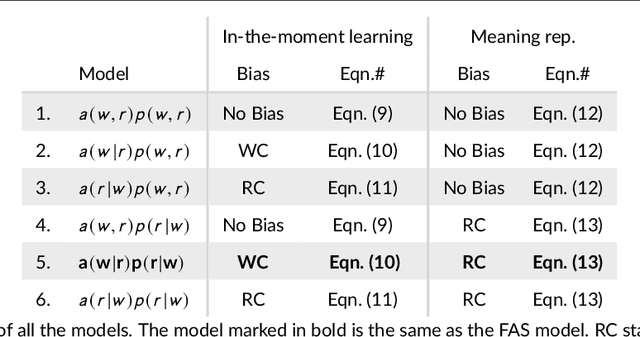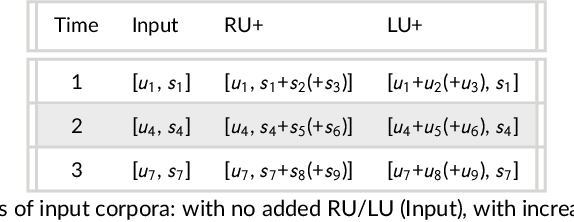Competition in Cross-situational Word Learning: A Computational Study
Paper and Code
Dec 06, 2020

Children learn word meanings by tapping into the commonalities across different situations in which words are used and overcome the high level of uncertainty involved in early word learning experiences. In a set of computational studies, we show that to successfully learn word meanings in the face of uncertainty, a learner needs to use two types of competition: words competing for association to a referent when learning from an observation and referents competing for a word when the word is used.
* 38 pages, 4 figures, 2 tables
 Add to Chrome
Add to Chrome Add to Firefox
Add to Firefox Add to Edge
Add to Edge